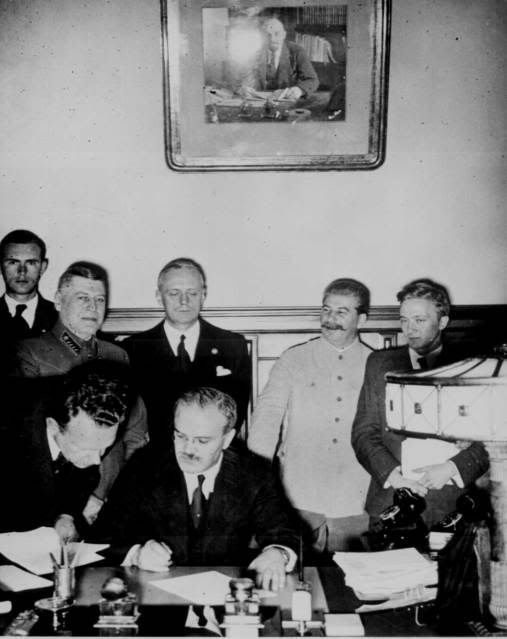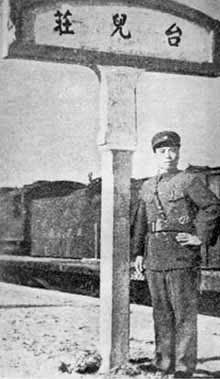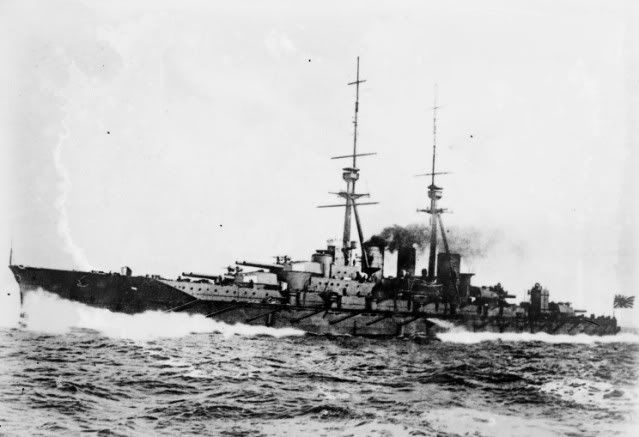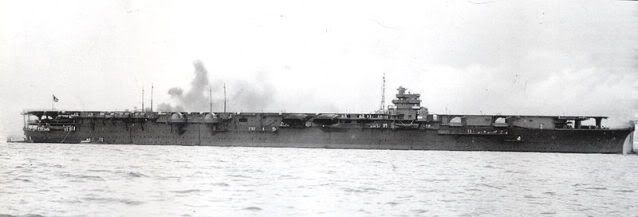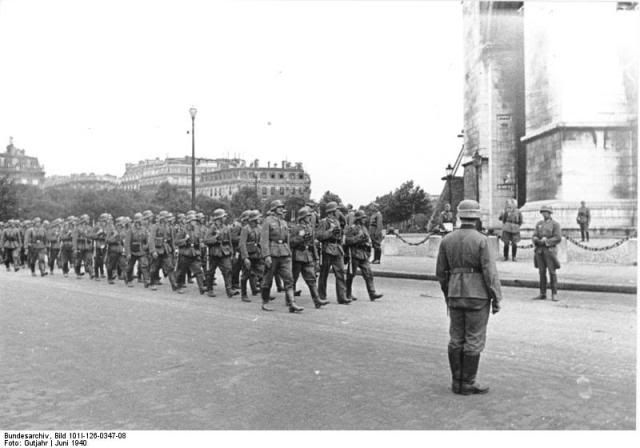Winter 1939-1940
Snows were falling fast upon the world in many areas where conflict future and present prevailed. In China the snow hindered but did not stop operations as the High Command determined that now was the time to push the Chinese deeper into their remaining provinces. The public was beginning to weary of the long war and many wrote in to editors of the newspapers or the government television shows. Their voices were being heard and thusly the army was emboldened to great daring feats. The weather though kept the air force grounded most of the time so the machinists and engineers took the opportunity to perform much needed maintenance and upgrades. The navy was likewise inactive, much to Admiral Yamamoto’s dismay.
In Europe the snows and rainy weather meant a cessation in hostilities, albeit temporarily. Still, Germany found reason to officially declare war on Norway mid-February as a means to keep a British presence out of their back door. This event would set in motion a series of events as nations that previously thought they were exempt from action began to reassess and revise their plans. Italy began their preparations for war in Europe, perhaps in anticipation of Germany heading south, regardless of the Pact of Steel. South Africa and New Zealand began to realize that mere words were not going to suffice as their leaders deliberated over what level of military assistance they needed to give to The Crown. Australia saw zealous volunteers flock to the colors as thousands upon thousands of adventurous men signed up for battle. In North America, Canada too saw the outbreak of war as being far reaching and thus began some extensive coastal defensive reinforcements. America too saw a German-Norwegian war as something more than two Nordic nations going at it. With Germany making threats closer to Britain, Congress acted (somewhat) by relaxing the Neutrality Act and allowed industrialists to sell weapons and supplies to belligerents.
Thanks to Berlin’s and Tokyo’s ambitions, winter this year meant more misery for a world beginning to recover from the devastating effects of the Great Depression many years earlier. It would not be the last sorrowful and dark winter to be experienced for millions and millions of the World’s inhabitants…
14th of January, 1940, Hiroshima city, Japan
Miye Yamasaki had arrived back to her modest apartment after visiting the store and postal office and began putting her few groceries away in the cupboard. Sugar and tea were fast becoming a scarcity with the rationing occurring in the homeland but few people complained. All knew their duty was to ensure the success and eventual safe return of their fighting men over in China and if a few luxuries could be skipped so their men overseas could enjoy some small comforts of home in the field. Besides, rice cakes were fast becoming the latest trend to sweep the nation with a new cooking show on television espousing its virtues as well as how to make them more enjoyable for dining on.
As Miye finished putting her food away in their proper places she took time to look thru her couple of letters she had gotten. Her heart stopped briefly when she saw, under a letter from her parents was one addressed from Tamura Yoshikazu apparently now deeply embroiled in the fighting in China, according to the condition of the envelope and contents of the letter therein. Taking a shaking breath she opened the envelope and read,
“Who would guess I harbour such a feeling towards you in this faraway land in the Chinese empire. It has been over a year since we met. You were just a younger sister of my friend, but I don’t know why I just cannot forget about you. I did not have a chance to write to you and I never sent you a letter expressing my feelings, as I thought it would not be appropriate.
My heart hurts when I am alone and I think about home. I know that it is impossible to seek your heart, but I still cannot get rid of this feeling.
You could well be a married woman by now. I am envious of your husband. Heaven does not know the feeling of the man who wishes for your happiness.”
Tears had begun to well up in Miye’s eyes as she read thru the short letter and as she finished the last sentence, the paper was marred by an escapee from her eyes. Clutching the cherished missive tight to her chest she sank into a nearby chair in order to gather her tumultuous thoughts. She then began composing a reply letter to the lonely soldier she remembered so well from last year when her brother and this dashing man met her while they were on leave.
24th of February, 1940, Chengdu province, China
The rain was fortunately rather light so as not to adversely affect Corporal Li Zongren’s unit, but still provide enough gloom to hamper visibility for the Chinese defenders. Of course, it went both ways so the attacking force had fitted bayonets to their rifles in anticipation of a close assault. It had been two days ago when operations began in this province and the fighting was especially heavy here. Zongren’s leaders were puzzled at the stout defense the Chinese mounted here where previously in Wudu province a short five hour battle pushed the defenders into a quick rout. Even in Xi’an province while it took three days to completely mop up all the defending forces, the main battle took all of half a day of fighting. Here though, Li and his friends privately thought to themselves that perhaps the Chinese had finally found their backbone, though it perhaps might have to do with the fact that finally the Japanese invaders had performed their first encirclement of the war and had trapped over twenty-two divisions in this cauldron. A similar battle was occurring in the neighboring province of Chongqing but there were fewer forces involved in the defense there.
The call to attack was finally sounded and Li along with his comrades erupted out of their foxholes, trenches, and makeshift bunkers to charge the enemy. Machinegun fire chattered from his left as the Japanese crews provided covering fire for the assault. A couple mortar and light artillery shells exploded among the attackers as the Nationalist Chinese began their part in attempting to halt the inexorable advance of the Empire, but only a few men were flung in the air or stopped in their tracks before their guns stopped firing due to lack of ammunition. With the Burmese Road having been cut off finally months ago, the effects of lack of supply were now being felt. With a roar Li and the men around him redoubled their efforts through the wet and sloppy terrain and within seconds (seeming like minutes as rifle and machine gun fire erupted along the Chinese line) the unit reached the defenders. A yell followed by a downward stab of his bayoneted rifle as taught years ago by his excellent trainers in Korea resulted in a dead soldier at Li’s feet, not his first and Emperor willing soon his last.
25th of February, 1940, Tai'erzhuang city, Chengdu province, China
Outside the local city rail station, Li posed for a picture to his family back home. Smiling, he reveled in the cheers and adulations of his friends and comrades as they celebrated another victory for the Emperor as well as yet another day they were alive. The fighting in Chengdu would not be over for another few more days as retreating elements of the Chinese from the neighboring province would stream in, but they too would be eliminated. Over twenty five divisions would be destroyed in a matter of a week and with this the end of the war in China would soon be at hand.
27th of February, 1940, Imperial General Headquarters, Tokyo, Japan
A break in the wintry weather of late gave General Anami and his staff an excuse to enjoy some warmer temperatures and bright sunshine outside in the atrium adjoining the war room. Having been completed last year, but too late to properly enjoy it, let alone dedicate to the Emperor, Anami had declared that his briefing today would be held there, especially in light of all the recent victories in China. Only a few northwestern provinces remained in Nationalist hands, as well as the couple of Communist mountain provinces that they had held since the start of hostilities. Anami had been reassured though by his advisors that the Chinese were thoroughly broken and a slight push would be all that was needed to end the conflict once and for all. Plans had been drafted up detailing how the country would be administered. It was determined that the Chinese peoples would be more receptive to their new lords if little pressure and few garrison troops were applied in the country. This suited Anami well as he needed every last man for the coming conflicts he foresaw in the years to come.
“The opening of the Hitachi works in Katsuta along with the two dozen provinces reporting completion of industrial improvements certainly means our plans next year will have the support they will need” one of Anami’s aides spoke.
“Indeed, though the industrial works projects are still not finished. Many provinces still are not at the minimum levels of industry we need them all to be at. That and the defensive works throughout our Empire will put a damper on any benefits we will see for several years. Still, this is good news” replied the general.
Looking over the reports further, Anami noted that all branches of the military were enjoying successes in research this winter. The Army saw finally good results from the recent clashes with the Soviets in the summer and a new Combined Arms Warfare Doctrine had been developed. This along with advances in medicines like Penicillin, DDT, and Mepacrine meant the fighting men on the ground wouldn’t suffer quite as much from the effects of fighting in a jungle environment. While many of its benefits wouldn’t be felt yet, Anami knew what conflicts loomed on the horizon and where they would be fought. He intended to ensure his men would be capable of war.
The Air Force had plenty of experiments in rocketry going on with Small Rocket Flight Tests and a special Liquid Rocket Fuel being developed for future use. In conjunction with a new Jet Engine Design the armed forces of the air obviously meant to use cutting-edge technology to gain an advantage on the world. Theorists had also expounded on some Early War Fighter Improvements that if explored fully could mean some of the more technologically advanced fighter craft in the world.
Yamamoto’s navy certainly wasn’t left out of the scientific bonanza as Early War Submarine Technology and a Miniature Steam Engine coupled together would mean definite improvements to the underwater forces. The battles in the Shanghai Sea gave theorists some Early War Naval Experience Doctrines that should prove quite useful against the more advanced navies of the world. The crème de la crème though was the development of plans for a Treaty Battleship that in its design essence followed the rules of the naval treaties following the Great War. With advances in engine and boiler technology this meant the Japanese shipyards could, if Yamamoto ordered it build a ship that fell in line with the treaties, thus not causing great alarm among the Americans, but yet be able to steam at speeds equaling the modern cruisers and carrier already in the fleet.
With great glee Anami ordered a round of sake drinks for his aides in order to ward off the coming chill of the evening. Yes, the new year of 1940 boded nothing but good tidings for the Japanese Empire!
Excerpted from How the East was Won by Robert Kincaid
…floods affected the nation greatly and it was nearly three weeks before the waters receded in Darwin. This did little to dampen the enthusiasm of the thousands upon thousands of men yearning for adventure in Europe or those with a sense of patriotism to help out mother England once yet again. The conditions in America at this time though were of a different issue. While Congress had relaxed the Neutrality Act restrictions (which this author feels did nothing but greatly hamper and even harm many nation’s ability to withstand the German juggernaut) there were two sections of the American public that pushed the US further back into its shell, or more properly its head back into the sand. Mind, the United Kingdom was fully mobilizing its Empire as South Africa, New Zealand, Canada, and now Australia were flocking to fight the Krauts. Across the Atlantic pond these two sections of diametrically opposing values ensured America’s non-involvement for many years to come and even induced the Japanese into its strategy of Asia First.
The first was the Communist Party – a small group to be sure, but vocal enough that their urgings of Isolationism would be heard by many, and plenty of those recipients of their propaganda being reminded of the costs of great war decades before listened and heeded them. This though would normally not have been enough to keep American politics deeply centered in isolation and if it were not for the devices of one of the most popular men in North America this author’s book may have had a different title, let alone a happier story to tell. Famed aviator Charles Lindberg and his America First Committee was formed around this time and pushed their own agenda of keeping the US out of any European conflicts, let alone a losing battle in China. Sadly for many years to come this party was most influential and quite able at keeping the US involvement in the Pacific and European wars to a minimum…
Interlude
Japan’s conquest of China would soon be finalized, all that remained were a few provinces, one of which contained the Nationalists temporary capital. Once they were swept away surely the Communist thorn in Japan’s side would be next and the question was simply how quickly the Empire could consolidate their conquests. After that, who knew which direction Japan’s attention would go to? The Soviet Union was certainly a viable suspect – the majority of the Japanese army was within a couple months’ worth of redeployment to their shared border, not to mention if Sianking was removed as well, there would be a soft and inviting hole to the Russian empire. A lack of industrial supplies like oil and rubber though, indicated a move to the south which in turn meant a declaration of war on France. Time would tell but for now the victorious Japanese were racing throughout the Chinese western countryside as fast as the rain and snow filled land let them.
Germany had few friends in this new European war but the conquest of Poland showed the world they didn’t need many on their side. Still, Hungary had joined themselves to Hitler’s side early on and in early March Bulgaria complemented the pair, making this war eerily similar to the allies in the First World War. How many more nations would throw their weight in with the so-called Axis’ fortunes remained to be seen. Equally mysterious was the final composition of the Allies, though for now it consisted of Norway, the United Kingdom, France, Australia, New Zealand, Canada, South Africa, Belgium, Oman, Yemen, Lebanon, and Syria. Impressive to be sure, arrayed against the Germans, but most of these nations were far away or could give only limited support. For now it would be England, France, and Belgium that would bear the full brunt of the Wehrmacht…
Note: Ah, nothing like a good conquering to get one’s blood flowing! The Chinese war was certainly taking its time, though looking through my notes and reading these AAR posts I’m somewhat saddened to see it so quickly over with. Plenty of provincial battles proved quite exciting and as being a long-time German player already, very enjoyable. Finally though the Chinese would be ripe for annexation, though I had toyed briefly with the idea of puppeting them, but in the end discarded that idea. My reasoning was that perhaps a China able to defend itself meant I could deploy my manpower elsewhere of greater importance. Regardless, I breathed a bit easier around this time as I knew I could easily deploy in time for action in the south…once the Communists were taken care of.
For those curious about the letter, I got that from
this site and just modified aspects of it. The letter is real, though written from Palau not China. While I revel in the successes of the Allies in World War Two, I can’t help but be curious as to the thoughts, feelings, and dreams of those they fought. Its easy to paint the Axis with the paintbrush of a monster, and in some cases its quite appropriate, but for the most part the Axis soldier was quite similar to their counterpart they combated. Oh, and sorry for getting so sappy with that letter but I kind of wanted to put a more human face on the activities of my Japanese units for a change.
)





